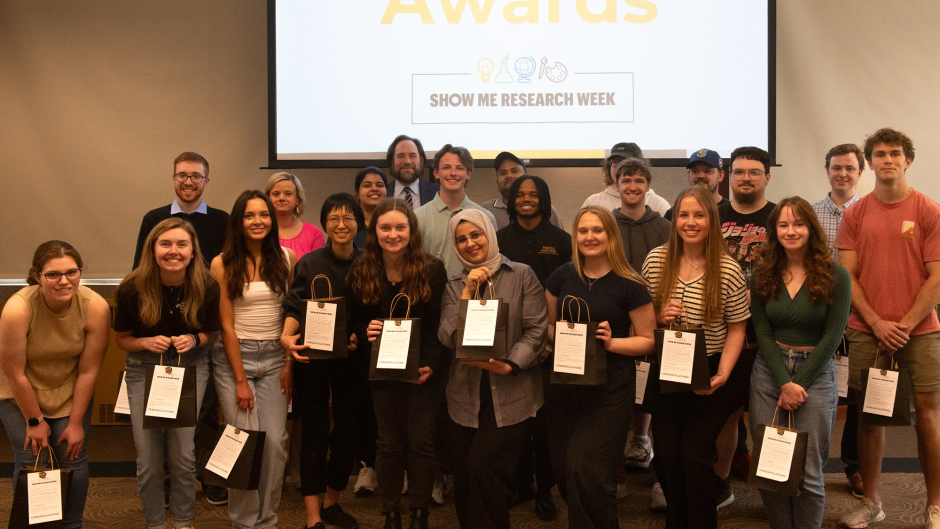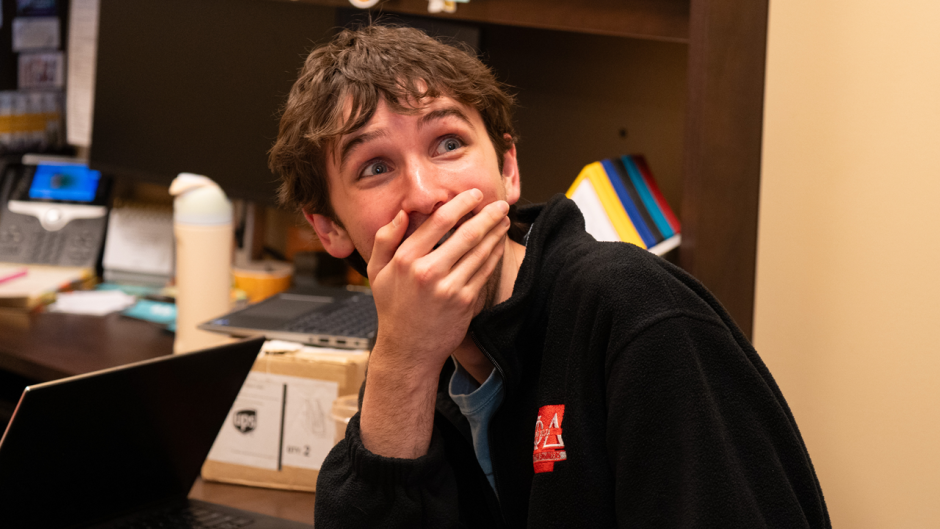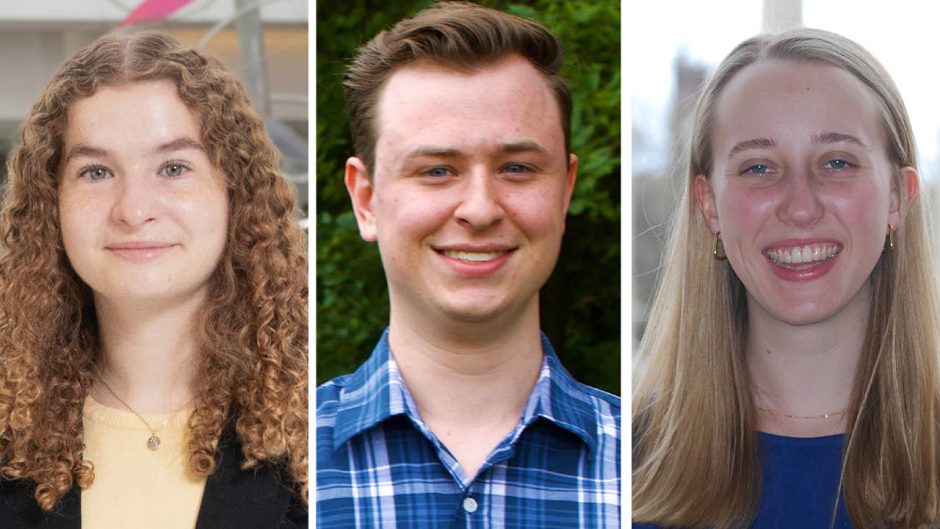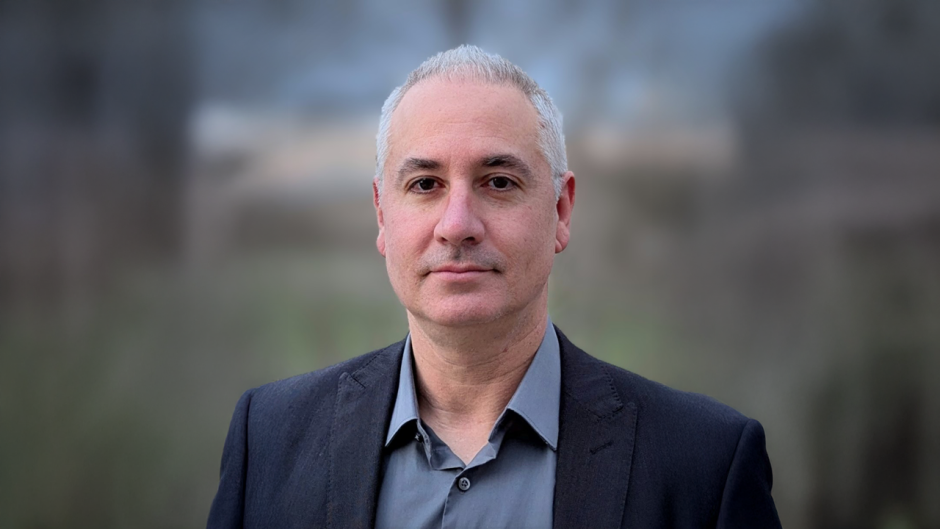May 18, 2022
Contact: Uriah Orland, 573-882-6212, uriah.orland@missouri.edu
The National Science Foundation has announced that the University of Missouri Graduate School is the first-place winner of its Taking Action: COVID-19 Diversity, Equity, & Inclusion Challenge in the STEM Graduate Student and Postdoctoral Researchers category.
MU was recognized May 16 for the graduate school’s proposal to expand opportunities to support underrepresented minority STEM graduate students’ mental health and well-being.
“Inclusive excellence is a core value of the graduate school, and this challenge provided an opportunity to demonstrate this value in a meaningful way,” said Jeni Hart, dean of the MU Graduate School and vice provost for graduate studies. “We understand that the long-term impact of COVID-19 is unclear, but to date, it has resulted in magnifying challenges to students’ mental health and well-being, exacerbated by isolation and lack of belongingness. We cannot be complacent about these issues.”
As a first-place winner, the MU Graduate School will receive a $25,000 cash prize, which will be used to continue DEI efforts within the school.
“This prize will allow us to build upon existing programs focused on supporting graduate student mental health, particularly those who are underrepresented in science, technology, engineering and mathematics disciplines,” Hart said.
The award also will be used by the graduate school to continue addressing ongoing impacts of COVID through programs such as the Grad Huddle — designed to offer a space for graduate students to build community and cultivate a sense of belonging, an essential part of their well-being.
“The Grad Huddle is the central program that we will be able to administer because of the prize,” said Hart. “Further supporting this effort is an ongoing project in conjunction with the Office of the Provost to improve mentor training for research on campus by using an evidence-based, nationally recognized curriculum that also embeds culturally aware principles.”
The DEI challenge was established to identify and share actions institutes of higher education can take to ensure and improve diversity, inclusion and equity in science, technology, engineering and mathematics.
“The Grad Huddle and programs like it provide better access and opportunities for underrepresented minority students in STEM fields,” said Maurice Gipson, vice chancellor of inclusion, diversity and equity. “By increasing diversity in STEM we include the perspectives and lived experiences of these students who play an important part in finding innovative solutions.”
Currently, approximately 42% of graduate students are majoring in STEM fields and 11% of these students are underrepresented minorities. But the statistics of diversity are only a part of the challenge.
“IDE is important in every field, and many STEM disciplines are the least diverse in the academy,” Hart said. “Although increasing diversity is necessary, it is not sufficient. We need to create environments — labs, departments, the university — where everyone is included and welcomed. Further, the future of discovery is improved by more diverse perspectives.”
MU Programs and Support
The NSF challenge also recognized MU’s other proactive efforts to mitigate negative impacts of the pandemic, including impacts to the more than 6,100 graduate students.
“We have made a commitment as a graduate school to prioritize student mental health and well-being,” Hart explained. “We also recognize the toll that the COVID-19 pandemic has had and will continue to have on our students and their well-being, especially for those who have been minorized and isolated, like our underrepresented STEM graduate students. We believe we have the foundation to advance our work in this area, and the NSF challenge allowed us the potential to support this work.”
Shortly after the start of the pandemic, the university committed $500,000 to extend the financial support of doctoral candidates who experienced research slowdown due to the pandemic. Additionally, graduate students supported by diversity fellowships were granted additional semesters of support in response to the pandemic. The university also focused on the development of many just-in-time programs to address concerns related to mental health and well-belonging, according to the award submission.
MU’s Graduate Student Mental Health Task Force, formed in 2021, is one example of the graduate school’s commitment to supporting students’ mental health. The task force has brought together faculty and graduate students to examine campus culture, review best practices and identify gaps in support and services. The task force will eventually transition to an advisory board to provide long-term oversight of graduate student mental health.
“From survey data we know that belongingness is an area upon which we can improve, and one that has mental health implications,” said Hart. “The task force will be vital as we implement the Grad Huddles to guide continuous improvement efforts, to help us build on what works and what may need to be improved upon.
The university has numerous additional programs in place to support graduate students, including strategic collaborations to provide professional development programming, Grad Welcome Groups and a newly established Graduate Student Success Center.
Strategic professional development collaborations were formed between the graduate school; Office of Research, Impact and Innovation; Counseling Center; Graduate Professional Council and faculty to support underrepresented minority and first-generation graduate students in STEM.
Grad Welcome Groups are peer-led by returning graduate students and meet weekly during the first 6 weeks of the fall semester to help new students navigate the challenges of graduate studies.
In January 2022, the Graduate School received a $100,000 grant from the Office of the Provost’s Enhancing Student Success at Mizzou to develop the Graduate Student Success Center. The Center – which is the first physical space at MU dedicated to graduate students – will function as a social and intellectual hub and a place for peer and near-peer interactions to support a sense of belonging and socialization from admission to completion. It will be a place to convene for the First-Year Scholars and Life Science Scholars programs, Grad Huddles as well as prospective underrepresented graduate students participating in the MU TigerView visitation program.




